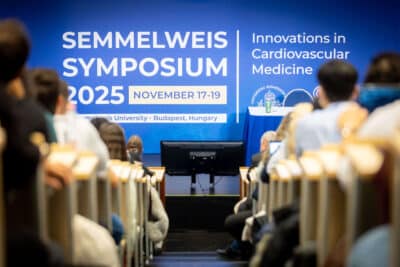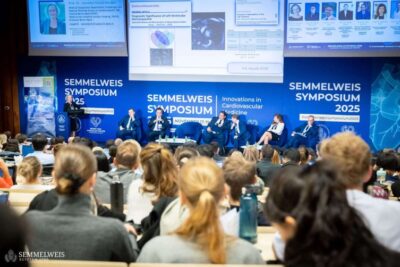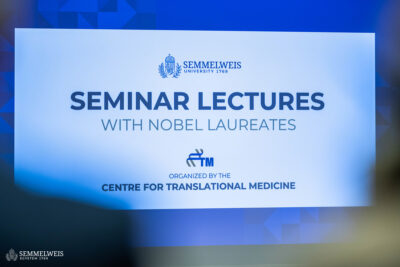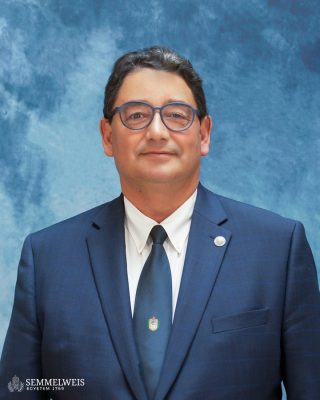
“Participants can find out more about the latest scientific results and innovations in the given field, and the program also provides an opportunity to expand international cooperation and build relationships with partners,” Dr. Béla Merkely, Rector of Semmelweis University, one of the main organizers of the event said.
He added that the three-day event will feature dozens of presentations in nine sessions held by prominent national and international experts. The rector of Semmelweis University will chair the Alumni session on November 9, where, following a keynote speech by Franz Weidinger on the future of cardiovascular medicine, Gabor Gäbel, Stefanos Sakellaropoulos and Lior Lowenstein will present on endovascular aneurysm reconstruction, oscillatory ventilation in hypertrophic cardiomyopathy and gynaecological surgery.
Dr. Béla Merkely emphasized that the event is an excellent platform for international knowledge transfer and networking. “Scientific output has a major impact on rankings in higher education, and Semmelweis University is making rapid progress towards becoming one of the top 100 higher education institutions in the world and one of the top 5 medical universities in Europe,” he said. He concluded by expressing his pleasure that, in addition to the national participants, some 30 eminent foreign experts from many countries of Europe and the world will also give presentations at the event.
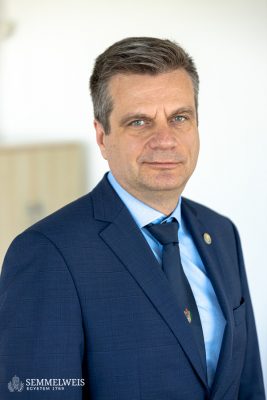
“For this year’s symposium, we were looking for speakers who have been or are in some way connected with or have participated in international education at Semmelweis University and have become internationally renowned researchers,” Dr. Péter Ferdinandy, Vice-Rector for Science and Innovation, the other main organizer of the event told our website.
“There is no specific scientific theme this year: in general, we have tried to organise it around people who play a role in international education, for example PhD students. While putting together the program, we have tried to focus the international spotlight on areas of science that mean perspectives for the university. We want to show how international colleagues who have graduated at Semmelweis University can pursue an academic career,” he added. He also stressed that their priority is to increase the number of international PhD students.
The very first Semmelweis Symposium was held in 1992. Its main topic was signal transmission, which was a current topic at that time when Dr. Miklós Réthelyi was the Rector of the institution.
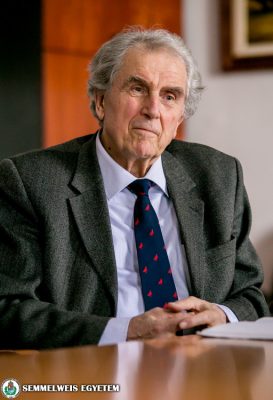
“The regime change had already taken place, a lot of programs had been launched in higher education and science: new ideas and plans were practically unlimited. Before I became rector, I had already spent several years working in the United States, I was part of the international scientific community.
I was aware of the importance of scientific conferences. It was not difficult to detect that scientific work should not only be done in order to be accepted by the circles of the home country: science becomes truly valuable when it is part of the international scientific life. The symposium was therefore an innovation. I was sure that if we advertised it at the university, there would be enough applicants. And there were,” Dr. Miklós Réthelyi, Professor and Rector Emeritus, former Minister of National Resources, and former Director of the Institute of Anatomy, Tissue and Developmental Sciences recalled.
“Thirty years is a lifetime. It is strange to think that those who are now running for office to organize such an event are roughly the same age as the Semmelweis Symposium,” he said, and stressed that the professional interest in the event has not waned with the passing decades.
This year’s Semmelweis Symposium will be held from 7-9 November 2022, at the Basic Medical Science Center (EOK). There will be presentations on a wide range of topics, from endovascular surgery to the treatment of atrial fibrillation and translational research in regenerative periodontal surgery. Participation is free, but registration is required. You can register here until 21 October.
Participation in the Semmelweis Symposium will earn 1 credit point for PhD and TDK students, while poster session participants will receive 2 credits and winners 3 credits. The symposium as a continuing education course is worth 46 credits for national doctors, dentists and pharmacists.
Rita Kónya
Photo: Bálint Barta, Attila Kovács – Semmelweis University
